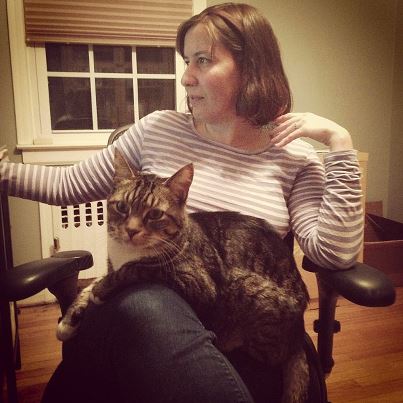When the Nate Thayer / Atlantic kerfuffle occurred, I cycled quickly through a series of reactions.
First, I felt a knee-jerk “Damn the man! Save the empire!” swell of joyful rebellion.
Then, after reading senior Atlantic editor Alexis Madrigal’s response — an explanation of the limits of digital publishing — I felt recognition.
That’s when I wrote this on one of the freelance writer forums I frequented:
“I must admit, I feel for those on both sides of this equation. I feel as if Nate Thayer obviously deserved to be horrified that he was being asked to re-purpose a piece for free… especially from a publication as well-established as the Atlantic. I also feel as if he shouldn’t have published those emails. Having worked at an online publication with a shit budget, I know that it was out of the editor’s hands. And then there’s Alexis Madrigal’s piece, which I found interesting. Because I think it gets to the root of the issue: The digital publishing model is hopelessly broken and devalues the work of writers, while at the the same time making it difficult for publications to stay afloat.
I’m not going to go into the issues of plummeting ad dollars and whether or not paywalls are a good idea and blah blah blah because it’s all been said before (though, personally, I’d pay for content if it was of higher quality than the drivel so often found on content mills… it’s why I subscribe to publications like Oxford American and Creative Nonfiction and Poets & Writers).
But I will say that the experience Alexis described in his piece rings true. At one point, I launched and managed a blog for an online publication, and it was a lesson in frustration and despair. The budget I was given was insulting. I wanted to bring in quality content, but the money I had to offer wasn’t worthy of the writing I wanted. In some cases, I pushed back against the publisher, trying to negotiate more money or better contract terms for my writers. But it was an uphill battle. And I’m seeing the same thing happening at most other publications.
I mean… isn’t that why so many of us have diversified? It’s become impossible for us to be paid what we’re worth for the work we’re most proud of?”
After writing that, I read through a slew of posts from freelance writers who either championed writing for free or shamed publications for expecting us to work for exposure. I felt the same sort of conflicted confusion I’ve already written about here.
And then, finally, I came upon this post over at Gawker, about what happens when people write for free. It pointed out what wasn’t being mentioned in the endless back-and-forth between online writers and digital editors: the fact that the writing game is “rigged for people who already have money.”
“I think I may be the voice of my generation. Or at least a voice of a generation.” – Hannah Horvath
There are parts of me that relate to Lena Dunham’s Hannah Horvath character in all of the most unflattering ways. I think it’s why I continue to watch Girls from week to week.
And when I read that Gawker piece, that’s where my mind went. Hannah and her oh-so-entitled expectation that her parents would continue to support her financially while she muddled along, attempting to follow her elusive, writerly dreams while completely failing to provide for herself in a more practical way.
That’s what stuck with me after all the back and forth about the digital publishing model and the value of writing and the downfalls and benefits of writing for exposure. That’s what eventually made the discomfort and the guilt and the uneasy recognition blossom in the pit of my stomach, where it had been already lying dormant.
I’ve gotten as far as I have because I’m privileged. I’ve gotten as far as I have because of my parents and my husband. If I hadn’t gotten married, I would never have left my full-time job in the academic book publishing world. Or if I did leave without the safety net of my husband’s income, I certainly wouldn’t be having this much fun writing for low-budget online women’s mags and literary magazines. I wouldn’t be spending so much time on my book proposal. I wouldn’t be going through a yoga teacher training program.
Most days, I actually believe the worst of the comments on this piece I wrote for LearnVest, on how income disparity affects my marriage. I can’t help it.
Now, I just wonder if I will ever make peace with my privilege… if I will ever come to a place where I live this life with gratitude rather than guilt.
Related: What Kind of Writer Are You?, Why It Took Me Four Years to Become a Freelance Hard-Ass


Wow, have you put to words some of what I feel. Although we would not have any of the same sort of life were it NOT for my freelance income, I, too, realize that I could not do this without the support system of my spouse: health insurance, life insurance, retirement accts with matching, a steady paycheck and so on. The infrastructure- computer, internet. It’s sad to admit, as my work at About.com means I’ve got to say YES this is a viable career. But is it really, for everyone? I don’t know. When I hear stories of people struggling with utilities getting shut off, I say: Go down to the local grocery store and start bagging groceries for a weekly paycheck!! (Not that it’s ‘that easy’ to grab that job, either, but….)
Such an interesting post, Steph. I’d love to see you do more pieces like this — diving into current news stories, breaking them down, and sharing your take.